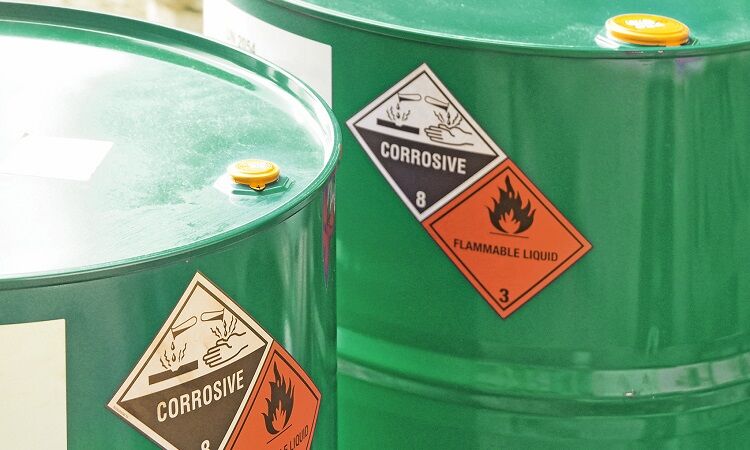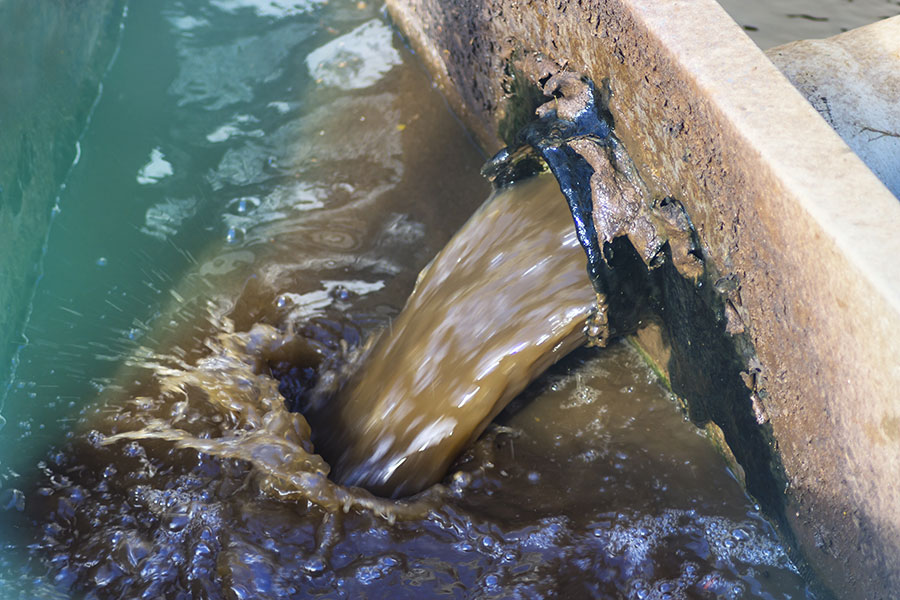How Liquid Waste Disposal Functions: An In-depth Introduction of Strategies and Technologies Utilized

Introduction of Fluid Waste Kind
The complexity of liquid waste kinds necessitates an extensive understanding of their characteristics and effects for disposal. Fluid waste can extensively be classified into a number of kinds, including commercial, metropolitan, farming, and hazardous waste. Each classification shows unique homes, needing particular management methods to minimize ecological and wellness dangers.
Industrial fluid waste originates from making procedures and typically consists of an array of impurities, such as heavy steels, solvents, and natural substances. Municipal liquid waste, mostly comprising wastewater from houses and commercial facilities, contains raw material, nutrients, and pathogens (industrial wastewater treatment). Agricultural fluid waste, including overflow from farms, may include fertilizers, pesticides, and animal waste, posing threats to water quality and ecosystems
Unsafe fluid waste is identified by its poisoning, sensitivity, or potential to trigger damage. Recognizing these diverse fluid waste kinds is vital for developing efficient disposal methods and making certain compliance with ecological policies.
Physical Treatment Techniques

Testing is the initial step, where larger particles and debris are gotten rid of from the liquid waste making use of displays or grates. This process secures downstream tools from damage and makes certain smoother operation. Complying with testing, sedimentation uses gravitational pressure to different solids from liquids. In sedimentation tanks, larger fragments settle near the bottom, creating a sludge layer, while the made clear fluid can be additional dealt with.
Filtration is an additional crucial method that entails passing the fluid via permeable materials, such as sand or membrane layers, to record smaller particles. This step enhances the quality of the fluid, making it ideal for subsequent treatment procedures.

Chemical Therapy Techniques
Chemical treatment techniques are important for properly managing fluid waste, especially in attending to liquified and colloidal contaminants that physical approaches might not effectively get rid of. These techniques use numerous chemical agents to counteract, precipitate, or change harmful materials into less damaging types.
One usual approach is coagulation and flocculation, where chemicals such as alum or ferric chloride are included in advertise the aggregation of put on hold particles. This process boosts sedimentation, permitting easier elimination of the resulting view publisher site sludge. Additionally, oxidation processes, utilizing representatives like chlorine or ozone, are used to damage down complex organic substances and pathogens, rendering the waste much safer for discharge or more treatment.
Neutralization is an additional essential technique, which adjusts the pH of acidic or alkaline waste streams to neutral degrees, protecting against possible damage to downstream systems and the atmosphere. In addition, progressed oxidation processes (AOPs) utilize combinations of oxidants and ultraviolet light to weaken relentless contaminants, achieving a higher degree of treatment efficiency.
Biological Treatment Processes
Biological therapy procedures play a crucial role in the management of liquid waste by making use of bacteria to disintegrate organic issue and reduce impurity degrees. These processes can be broadly classified right into cardiovascular and anaerobic treatments, each utilizing specific microbial areas to accomplish reliable waste degradation.
Aerobic therapy includes making use of oxygen to help with the break down of organic products by bacteria. This procedure is typically carried out in turned on sludge systems, where aeration tanks provide a favorable setting for microbial growth, resulting in the oxidation of natural contaminants. The resultant biomass can be you can try here separated from dealt with effluent via sedimentation.
On the other hand, anaerobic therapy occurs in the absence of oxygen, depending on different germs to damage down organic matter. This technique is particularly advantageous for high-strength waste, as it produces biogas, a renewable power source, while lowering sludge production. Technologies such as anaerobic digesters are regularly used in metropolitan and commercial applications.
Both cardiovascular and anaerobic organic treatments not only lessen the environmental effect of liquid waste but additionally assist in source recovery, making them vital parts of sustainable waste monitoring approaches. Their effectiveness, effectiveness, and flexibility sustain their extensive execution throughout various fields.
Emerging Technologies in Disposal
Ingenious techniques to fluid garbage disposal are quickly evolving, driven by improvements in technology and an increasing emphasis on sustainability. Amongst these arising technologies, membrane layer bioreactors (MBRs) have actually gained traction for their capability to incorporate organic treatment with membrane layer filtering, leading to top notch effluent that can be reused in various applications. MBRs allow smaller sized footprints and much more reliable operations compared to typical systems.
Another encouraging development is the usage of anaerobic digestion combined with nutrient healing modern technologies, which not only treats liquid waste however additionally produces biogas and recuperates beneficial nutrients like nitrogen and phosphorus. This dual advantage enhances source effectiveness and lowers environmental effect.
In addition, advanced oxidation processes (AOPs) are being adopted for the destruction of complicated organic pollutants. These techniques utilize powerful oxidants and stimulants to break down impurities at the molecular degree, providing an extremely efficient solution for difficult waste streams.
In addition, the assimilation of you can check here man-made knowledge and artificial intelligence in waste monitoring systems is maximizing functional efficiency and predictive upkeep, bring about decreased prices and improved ecological conformity. These innovations show a considerable shift towards even more lasting and effective fluid waste disposal methods.
Verdict
In final thought, effective fluid waste disposal requires a thorough understanding of numerous techniques and modern technologies. By continuously progressing these methods, it comes to be feasible to deal with the growing challenges linked with liquid waste, eventually adding to environmental security and source healing.
Fluid waste disposal is a critical element of ecological administration, requiring a comprehensive understanding of different strategies and modern technologies customized to various waste types. Fluid waste can broadly be classified right into several types, including commercial, metropolitan, farming, and harmful waste. Agricultural fluid waste, including runoff from farms, might have plant foods, chemicals, and animal waste, presenting risks to water top quality and ecosystems.
Different physical therapy techniques play a critical function in handling fluid waste successfully - industrial wastewater treatment.In verdict, reliable liquid waste disposal necessitates a detailed understanding of numerous strategies and innovations